‘I went on BBC’s The Traitors so domestic abuse wouldn’t define me’
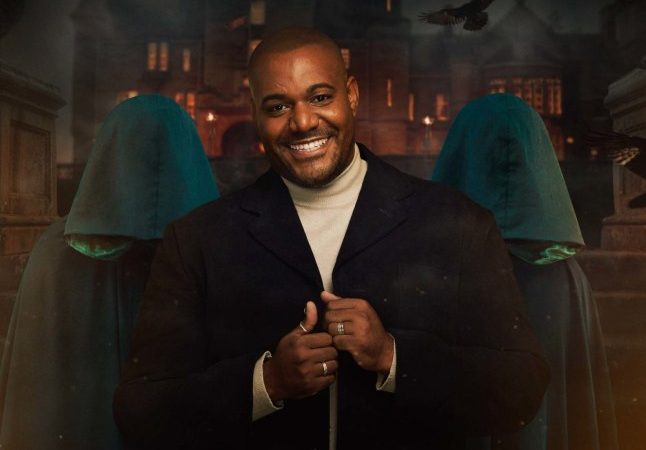
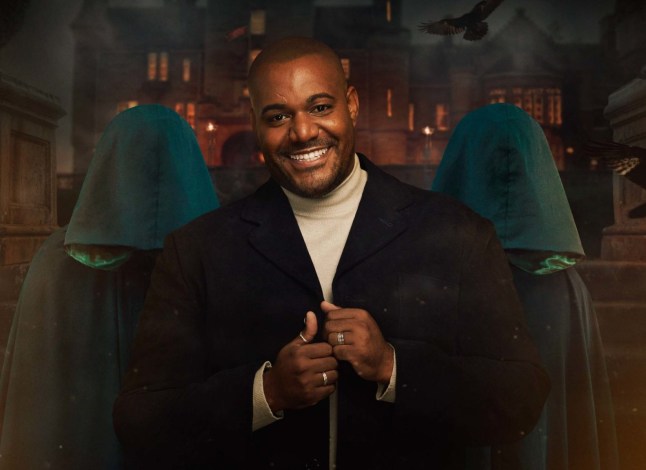
Miles Asteri spent his whole life hiding – outside the school gates, at parties and on paper, from a tall shadowed figure.
Then he went on the BBC’s biggest reality show in years, The Traitors.
‘I’m an adult,’ Miles, 38, reasoned, when deciding whether to step into the bright lights of showbusiness and in turn risk his father re-entering his life, stalking him and his mother Anna, 62.
‘By the time the Traitors came around, I thought, “Screw it. I’m not going to let it define who I am”,’ a burly, gentle Miles tells Metro over a Zoom call, sitting next to his mum Anna; a petite, self-assured woman whose face peeks out from under a silky, Claudia Winkleman-esque fringe, her head slightly sunken into her leopard print shirt.
‘I know there’s a lot more help out there now, but I hope that on hearing my story someone can relate to it,’ Anna says.
Over a year on from Miles’ series two Traitors appearance, he and Anna want to use his platform to help others, and show them that there is hope, no matter how dark life may seem.
To view this video please enable JavaScript, and consider upgrading to a web
browser that
supports HTML5
video
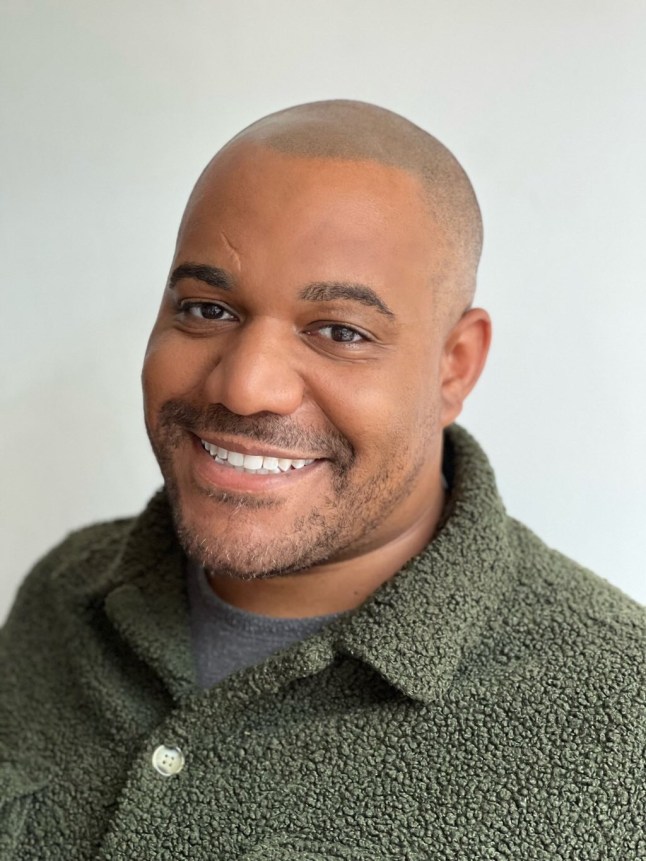
‘He was a gentleman. He was lovely. He swept me off my feet if I’m honest,’ Anna explains when remembering what Miles’ father was like in the first two years of their relationship. But then everything changed.
Join Metro's The Traitors community on WhatsApp
Want to get all the latest news and predictions for the best and most dramatic show this new year? Join our The Traitors WhatsApp channel for live episode coverage, behind-the-scenes gossip and a place to recover from all the cliffhangers.
Simply click on this link, select ‘Join Chat’ and you’re in! Don’t forget to turn on notifications!
‘The first time he hit me, I was six months pregnant,’ Anna says. ‘I remember I had my back against the wall. It was a big smack, just one.’
She continues: ‘I’ve never been so shocked in my life; it just stunned me. I probably should have got up and left, but I was pregnant, and young. I thought it was just a one off, but then it escalated.’
This is not uncommon. Up to 30% of domestic abuse cases begin during pregnancy, and 20% of women in charity Refuge’s services are pregnant or have recently given birth.
Once, he headbutted Anna when Miles was a baby in her arms. Another time he came home from work and said, accusatorily: ‘You always feed that baby before me.’
‘I remember thinking, “What?” I couldn’t believe what I was hearing. He wanted this child, but then he was jealous of the child, of the attention the child was getting off me,’ Anna remembers.
‘Every argument he’d either push me up or hold me up,’ Anna says, gesturing to her neck. ‘Unfortunately for me, it became the norm.’
When she was suffering from domestic abuse in her home, Anna used to get hit so much she had a scab on the inside of her mouth that never had time to fully heal.
While it eventually did, both Miles and Anna say the psychological damage remained.
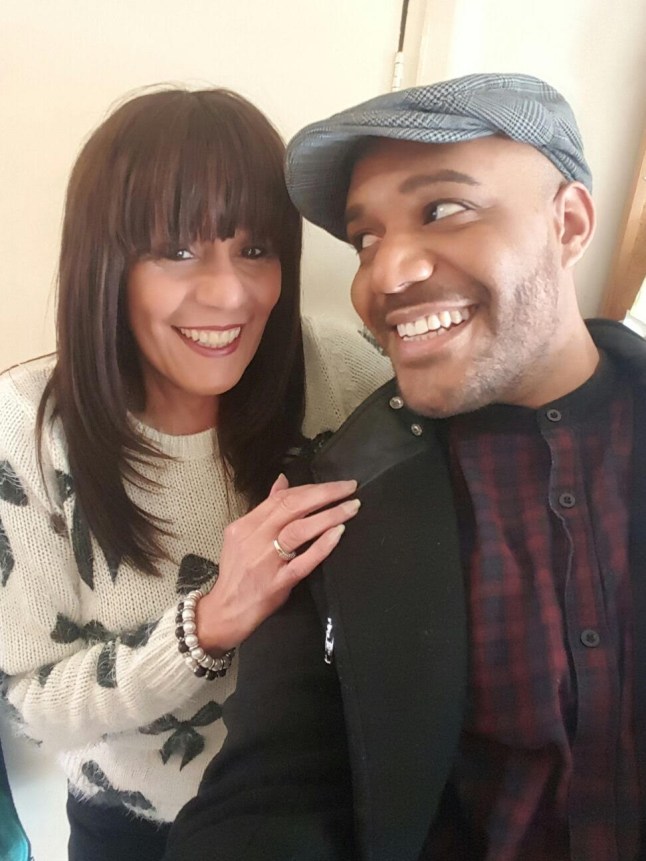
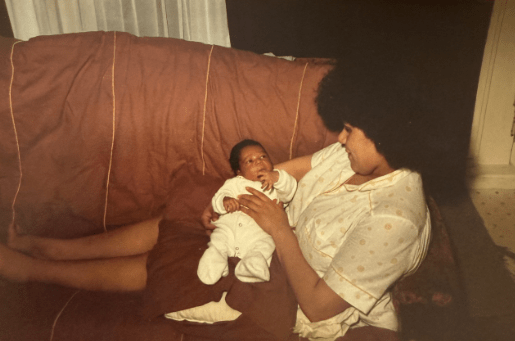
‘I used to hold my own. I was never a timid woman of any description. But he wore me down. Even then, I wasn’t a gibbering wreck. But my mind accepted it. This is who I’ve got to be with now. This is the choice I made,’ Anna says.
Miles used to get a cloud of anxiety every Thursday and Friday, and he later realised that was because his dad’s violence and intimidation intensified at the weekends.
Anna clocked out of their relationship when Miles was just a baby, but she was too scared to leave for another few years. She knew he wouldn’t make it easy when she packed her bags. And he didn’t.
‘When people go the violence intensifies,’ says Miles. ‘So because of that, you feel like it’s almost better to stay and take the violence that you’ve got now than the violence that you’re potentially going to get.’
He is right. It takes, on average, 7 attempts before a woman suffering from domestic abuse is able to leave for good, according to Refuge.
Miles remembers, too. He remembers seeing his father on top of Anna on the kitchen floor ‘laying into her’, and he struggled with guilt as a powerless young child.
Anna remembers Miles once grabbing hold of his leg to make him stop.
‘Sometimes I’d be playing in the background and thinking, “Oh my God, this terrible thing is happening… What do I do? Do I get involved? Do I not get involved?”‘ Miles reflects.
When Miles was four, they fled their home in the middle of the night and stayed with Anna’s mother. They eventually moved into their own flat. But his father would always find them.
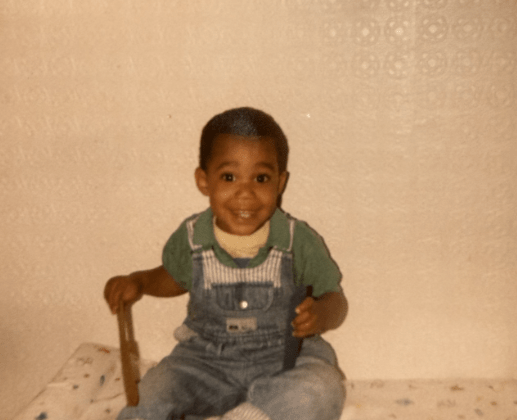
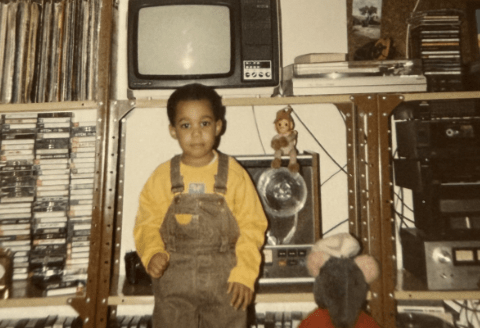
‘After I left him he stalked me for two years. He’d turn up at work, he’d be standing at the bottom of our flats. He didn’t drive. How he got to these places…’ Anna says, shaking her head.
‘I came out of a toilet once and he was there,’ she added with wide-eyed bewilderment.
They once spent an evening hiding in a dumpster, terrified to move, with him just yards away staring up at the window into their third-floor flat. He was so transfixed on the window, he’d missed them walking out the door.
‘I remember Mum telling me to turn – because I had a black jacket on, and to use it as [camouflage] because it was night time and quite dark. We were hiding in there and waiting for him, having to be so quiet,’ Miles says. ‘That fear,’ he adds, shaking his head.
‘I’ve never been so frightened like that,’ Anna says. ‘You know when you feel your heart actually pounding? Because he was right there. I was going to wear this white shirt. Luckily, I’d put something dark on myself.’
Even when he disappeared, Miles and Anna stayed as still as statues in the shadows, in case he returned.
Miles had a constant worry he was going to be taken, as his dad always threatened to. Abusers often use family courts to continue their tortuous campaigns.
‘He was a big guy. We lived with this fear for years after. That’s why I think domestic violence is not just physical violence, it’s the emotional and psychological stuff,’ Miles says.
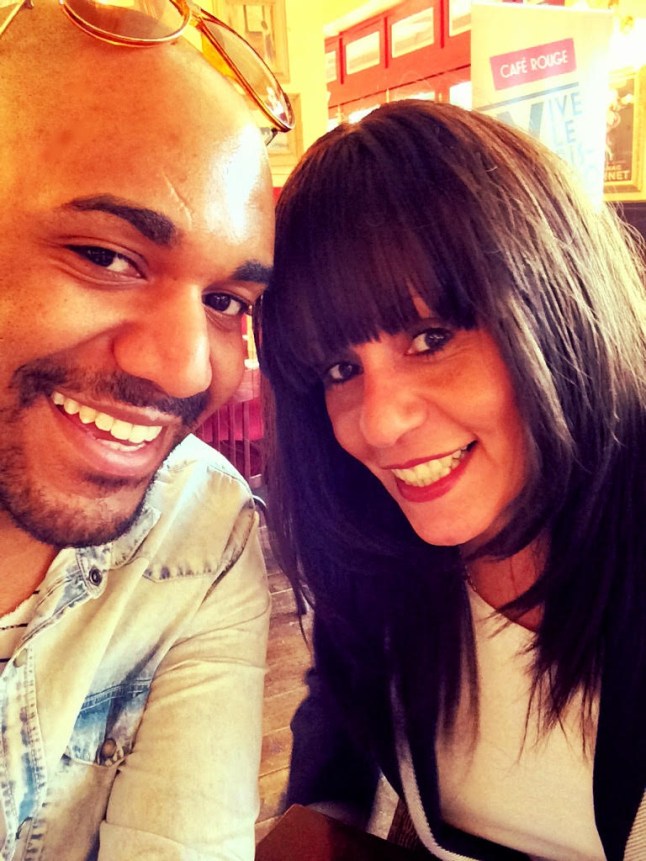
‘It was almost like we were on lockdown,’ says Anna, remembering times Miles wanted to play with friends, write to penpals, and go on trips, and she’d have to tell him no.
‘The police were as good as a chocolate teapot,’ she adds.
‘Back then it was, “When he does something, let us know?” Him standing outside my flat, looking at the window, banging at the door, he wasn’t doing anything…’
Even after Anna got full custody of Miles, the terror remained.
‘When my custody was finalised, things kind of died off a little bit,’ Miles says. ‘But at the same time, we were always looking over our shoulders for years, not knowing that he’d had a medical crisis and wasn’t functioning at the time. We didn’t know that until my late 20s.’
‘I was nervous, I was scared to leave the house, looking over my shoulder all the time. There was no help at all,’ Anna agrees.
‘They say when a parent is being violently attacked or abused, the damage is the same as if it’s happening to the child,’ Miles says, having learnt about child psychology while looking into adoption with his partner Pip, and in turn, reflecting on his own beginnings.
‘I want people to know, you shouldn’t let those bad people in your life define who you are. It took me a long time to work it out, but it wasn’t about me. So I shouldn’t take that luggage with me.’
Through all the horrific stories, which Anna and Miles have hashed out together over the years through tears and fractured memories, there were good times, too.
Recounting these flashes of good from the darkest days, born from Anna’s love, is the only moment Miles is emotional throughout our two-hour chat.
‘Sorry Kitty,’ Miles says, voice trembling, describing a photo of his fifth birthday, in which Anna, Miles and his wonderful stepdad posed in front of a party food spread.
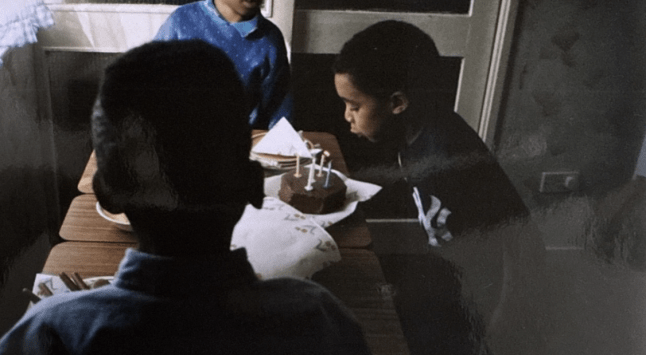
‘They tried their best to make good in a really bad situation. They were trying to let me have a birthday,’ he finishes.
Anna sums it up: ‘The thing is, we were tight. We still are. It made us really tight. He’s over 6ft now, but even now if anyone went near him, they’d have to get through me first.’
As for her younger self – lost, bruised, and battered – Anna has a message: ‘I would say, share your problems. I kept it all to myself. Nobody knew until it blew up. I would say communicate with your sister, friend, mum and dad. Anyone.
‘There is a happy ending. You can get out of it. You can move on and be happy. There is hope.’
Got a story?
If you’ve got a celebrity story, video or pictures get in touch with the Metro.co.uk entertainment team by emailing us celebtips@metro.co.uk, calling 020 3615 2145 or by visiting our Submit Stuff page – we’d love to hear from you.
